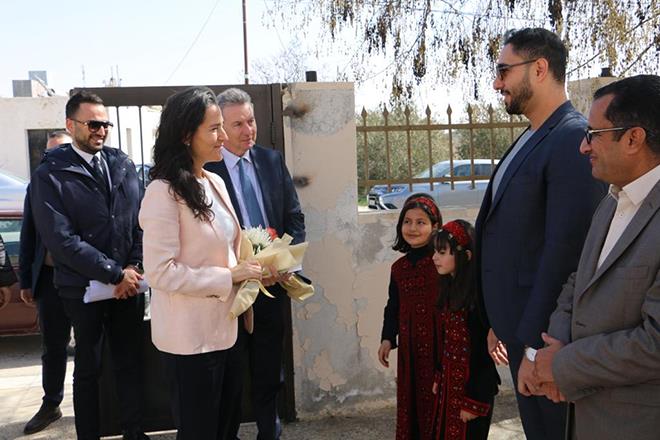(MENAFN- Jordan Times) AMMAN - Mercy Corps Jordan on Monday launched the“Livelihoods and Environmental Actions for Development” project (LEAD) in Zubairyeh village in Shoubak Municipality in Maan Governorate.The Chairman of the Board of Directors of Aqaba Water Company, Mahmoud Al Naimat, and the Australian and Swiss ambassadors, Bernard Lynch and Emilija Georgieva, attended the ceremony, according to a statement from Mercy Corps Jordan.
The LEAD project, funded by the Australian Government's Department of Foreign Affairs and Trade (DFAT) and the Swiss Agency for Cooperation and Development (SCD), is a two-year project aimed at improving sustainable water management and enabling climate change adaptation in Jordan.
The LEAD project focuses mainly on three sectors: Water security, agricultural management, and livelihood generation.
In the opening remarks, Adel Al Rafaia, Mayor of Shoubak Municipality, expressed gratitude for the efforts made to make this project possible.
Assistant Secretary General at the Ministry of Environment Raed Bani Han praised the project's idea and those in charge of it from government agencies, organisations and the local community, emphasising that the project's objectives are consistent with the Ministry of Environment's vision and strategy in adopting the use of environmentally friendly sources.
“This joint Australian-Swiss funded water project aims to improve Zubairyeh's resilience, improve livelihoods and meet long term needs in a climate responsive, community-based approach,” Lynch said.
Georgieva, in her speech, stressed the importance of this project for the people of Shoubak and particularly Zubairyeh residents.“This project, which will be implemented by Mercy Corps with the support from the Swiss and Australian embassies in Jordan, will help mitigate climate change effects on the community while also supporting the local economy,” she said.
Mercy Corps Jordan Country Director Darius Radcliffe talked about the importance of preparing for climate change by building the technical and financial capabilities of smaller, more remote communities so that they can secure their water supplies and increase their agricultural production.
“In full cooperation and participation with our partners and the community, LEAD will do this while simultaneously improving efficiency and access to markets and services so that livelihoods can be more sustainable in the long-term,” Radcliffe said.
The speeches were followed by a short video that highlighted the challenges that Zubairyeh residents face, which the LEAD project will address through its various interventions. Following the video, project participants, including food producers, smallholder farmers and youth, had an outreach session.
Guests also headed to the Abu Makhtoob well to see ongoing renovation work, as the LEAD project has started undertaking major water infrastructure projects in Zubairyeh village. This comprises major pump station rehabilitation, the installation of a 160 KWP pump photovoltaic system, the renovation of the village's water network, and the replacement of water flow meters at the household level.



















Comments
No comment